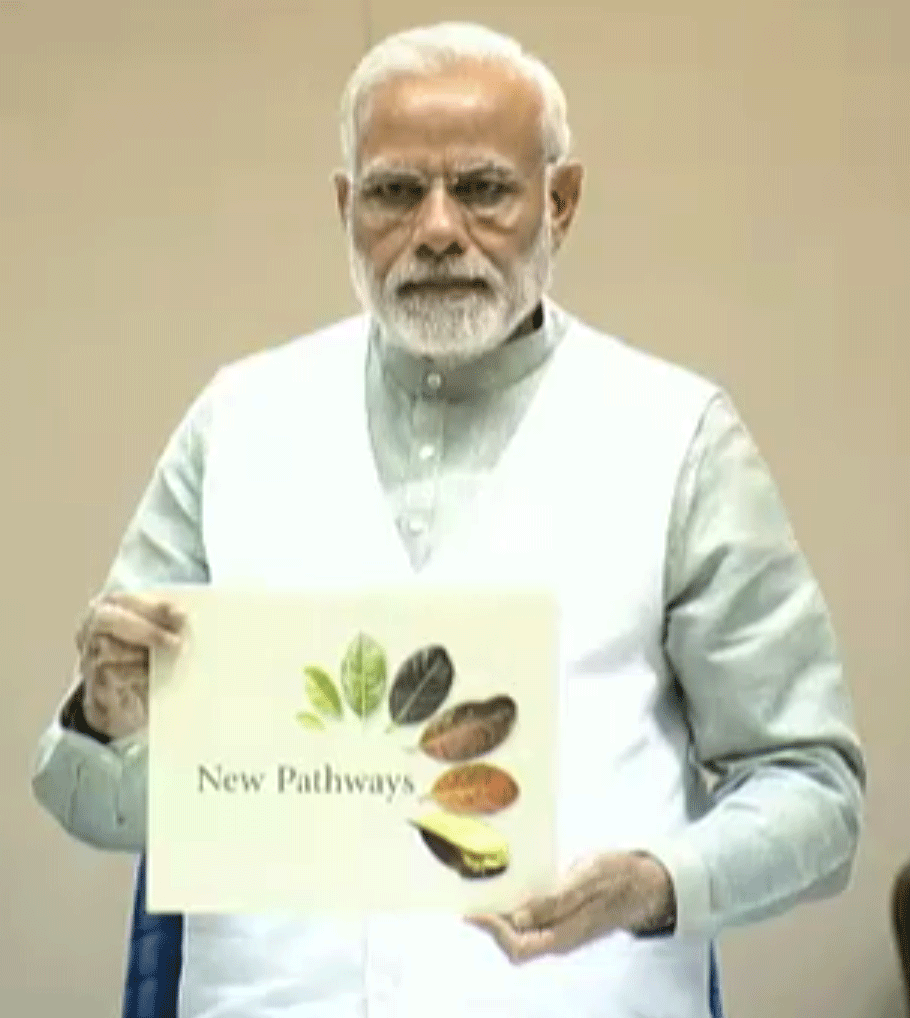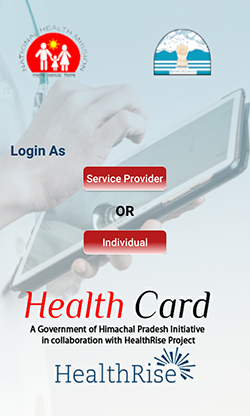Indian Government Honors HealthRise App with Innovation Award
“HealthRise” E-Health Card App Improves Chronic Disease Surveillance and Public Health Services for More than 1 Million People

Conceptualized by the Government of Himachal Pradesh, India and developed by Abt Global under support from Medtronic Foundation, E-Health Card launched in August 2017 to advance chronic care surveillance in Himachal Pradesh. The digital innovation was selected for a Prime Minister’s Award for Excellence and has been featured in the Minister’s book, “New Pathways: Stories of Innovations and New Initiatives in Implementation of Priority Programmes” in April 2018.
The E-Health Card is part of the HealthRise project, a five-year, $17 million global effort supported by Medtronic and globally managed by Abt, which expands access to care for non-communicable diseases (NCDs) among underserved populations in targeted geographies in Brazil, India, South Africa and the United States.
An App for NCD Disease Surveillance to Monitor Millions
The electronic health card is a web-based application that enables frontline health workers--Accredited Social Health Activists (ASHAs) and Auxiliary Nurse Midwives (ANMs)--to use tablets or smartphones to screen and collect individual patient level data on key risk factors related to chronic, non-communicable diseases (NCDs), such as cancer, diabetes, cardiovascular disease, stroke, mental illness, chronic kidney disease, respiratory disease, and epilepsy. The easy to use tool helps health workers identify individuals at risk for ten disease conditions and refer them for further diagnosis and treatment.

The application has been designed with the capability to monitor around three million adults in the state for diseases, such as hypertension, diabetes, cancer and other chronic diseases, and generate information on NCD-risk factors’ prevalence and NCDs’ burden in the entire state. A unique feature of the E-Health Card enables patients to directly access their health status through a secure encrypted login system with an auto generated one-time password on their mobile phones and take control of their health behaviors based on the information.
In consultation with the government of Himachal Pradesh, and through its HealthRise work, Abt developed E-Health Card to facilitate patient data collection and facilitate decision making. By digitizing data as close as possible to the place of origin, the E-Health Card will improve NCD screening of patients for illness and monitor those for treatment adherence. The app has been used to create 300,000 Health Cards to monitor 10 NCDs.
“In the absence of a robust health information system for NCDs,” said Komal Khanna, HealthRise India project director, “this app is a key mile stone in the area of NCD surveillance for the country.”
Future plans
The E-Health Card is evolving with further integration of management information system developed to track HealthRise patients through the continuum of care. The E-Health Card will include a follow-up application to identify patients who reach a health facility for diagnosis and treatment to further enhance the NCD surveillance system, which was currently non-existent. Being the first E-Health Card in the country and in the South East Asia region, it has the potential to expand to other states and countries as well. Replication of the E-Health Card is in discussion in other states with donors and other key stakeholders interested to adopt and replicate the model to improve disease surveillance.
HealthRise 25 by 25
HealthRise aims to contribute to the World Health Organization’s goal of reducing premature mortality associated with NCDs by 25 percent by 2025 through the implementation and evaluation of innovative, sustainable and scalable community-based demonstration projects.
“These projects empower patients, strengthen frontline health workers, and advance policies to increase the detection, management and control of CVD and diabetes and enable people living with chronic diseases to successfully manage their condition over the long term,” said Nayanjeet Chaudhury, Medtronic Foundation, Global Best Practices, senior technical advisor. “As HealthRise India shows, technology and innovation are going a long way to help people and strengthen health care systems.”
Read more about case studies from India.
